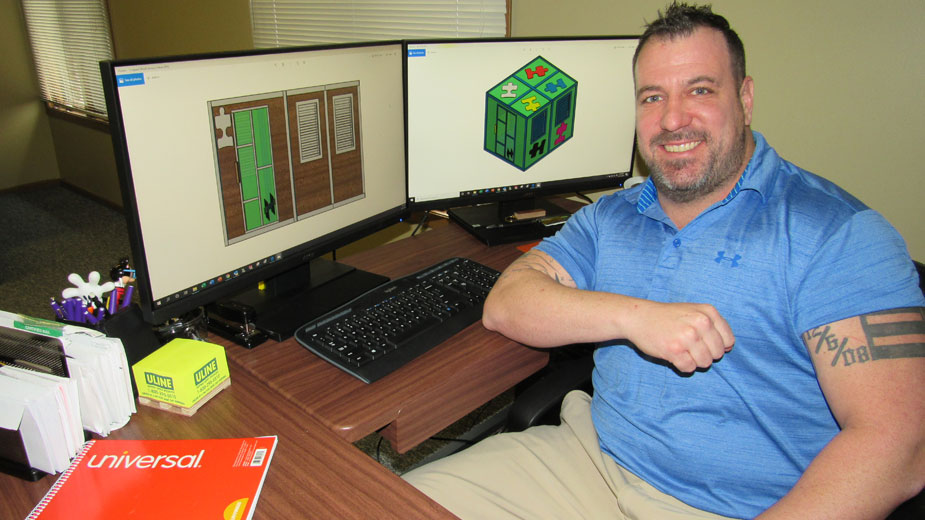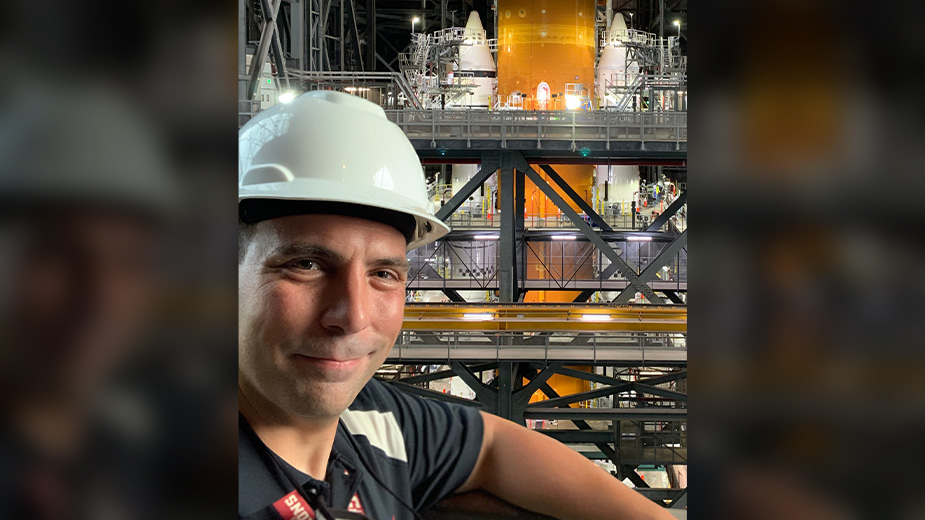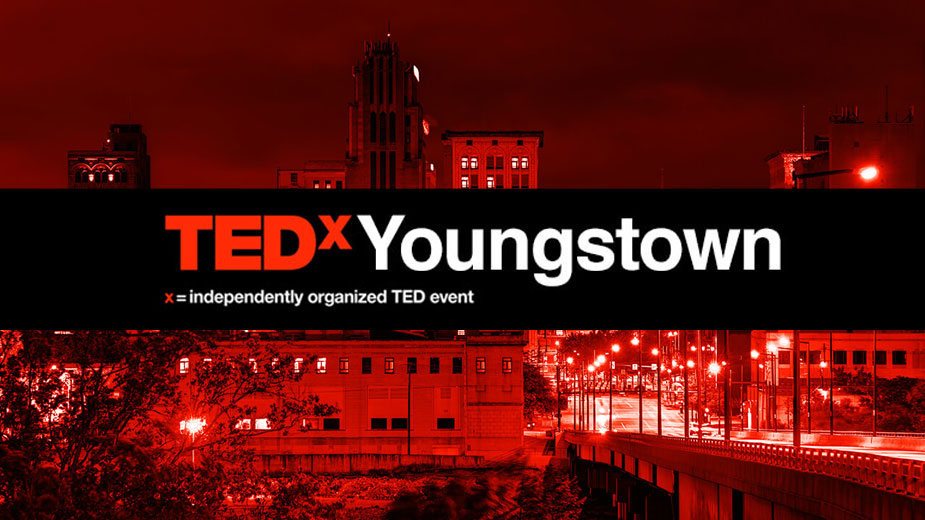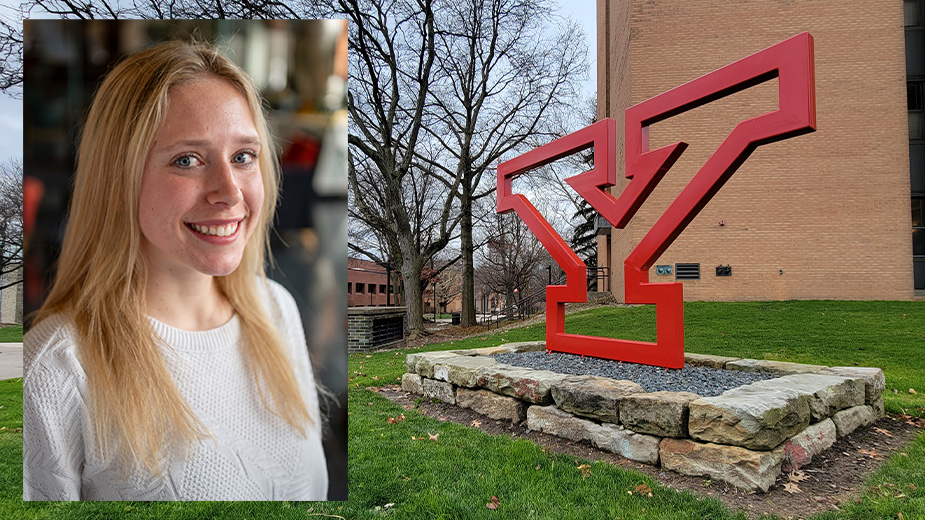TJ Marzano Eyes ‘Very Good’ Year for His Startups
YOUNGSTOWN, Ohio — To say TJ Marzano has some irons in the fire is an understatement.
In July 2018, Marzano formed Cugini Engineering Consultants to be a “one-stop shop” for engineering services and solutions, from mechanical, electrical and systems engineering to software, cybersecurity, information technology and the Internet of Things.
“I’ve always wanted to do business a certain way with a certain ethical background, and provide a level of service, support and solutions to customers big or small in the exact same way, or in a way that I can control,” Marzano says.
Originally, he planned to move to New York City to base his company.
But then he found that by staying in the Youngstown area, he could offer customers the same solutions “at a much more competitive rate based on our location,” as well as an available workforce, which is “extremely talented,” he says.
“They may be understated, but they’ll go toe-to-toe with most of the other engineers that I’ve talked to outside of this area,” he says.
Marzano isn’t hiring yet, but says he’s working with national and international companies and organizations – such as the Robotics Hub in Pittsburgh – to generate “a nationwide and global presence,” for Cugini and its partnerships, he says.
Such partnerships present business opportunities domestically and abroad, he says. By spring, Marzano expects Cugini to launch Free Yield Distribution, or FYD, which he promises is “going to impact a lot of industrial automation applications.
“2020 is going to be a very good year,” he says. “It’s looking, from a projection standpoint, close to the point where we may be hiring five- to 10 engineers and manufacturing support.”
Still, Marzano says he’s not stopping with just one company. At the same time he launched Cugini, Marzano laid the groundwork for several spin-off companies with different focuses.
Among them is Flex Force Fitness, which manufactures products designed by Cugini. This spinoff company’s solutions upgrade “less intelligent” physical therapy and fitness equipment with smart technology, including sensors and radio frequency identification, or RFID, Bluetooth capabilities.
“Flex Force has actually broken off into another company for its physical-therapy section called Quanta Therapy Solutions,” Marzano adds. “That is primarily fixated on pediatric rehabilitation and the combination of smart technology for auditing as well as indemnification for physical therapists.”
It will take another year to get Flex Force manufacturing, but Marzano looks to establish his plant in the Youngstown area, he says.
With his manufacturing experience in the region – he was a senior-level machinist at a few companies and worked at Velocity Magnetics in New Castle, Pa. – Marzano can attest to the region’s assets.
“There are a lot of very good and talented manufacturing suppliers in this area,” he says. “Before I actually create my own manufacturing facility for that product line, I’m going to outsource to local companies.”

Another startup, Your Haven, designs and builds “smart, small rooms” to provide a quiet, secure location to conduct business in metropolitan areas. Identifying similar needs for children with autism as well as veterans who suffer from post-traumatic stress disorder, or PTSD, led to Marzano spinning off that company to create Sensory Haven to develop rooms for those populations.
During Marzano’s research, Lark Enterprises, a New Castle-based nonprofit that provides job training and social-engagement opportunities for people with significant disabilities, provided feedback on what should be included in the sensory rooms.
Each 80-foot-by-96-foot modular, standalone room “provides a safe calming environment,” he says.
Items in the rooms address three main sensory categories – tactile, auditory and visual – and can include miniature massage balls, a music-light show, rain tube, thumb chucks, light-up rattles, concentration rockers and other tools.
Rooms can be installed within homes, schools, amusement parks, hospitals, big-box retailers, stadiums and any place where they may be needed, he says.
Marzano wants Sensory Haven to be as much of a benefit to its employees as its customers, he says.
He’s lining up local workshops that employ adults with mental disabilities to help with fabrication, as well as organizations that help veterans with disabilities find work for assembling the rooms.
He’s also working with local additive manufacturers to use as much recycled materials as possible for construction of the rooms.
“It’s a slow but steady process in order to generate all of these strategic partnerships and look at what that price point is going to look like,” he says. “But all of the feedback has been very positive with regards to groups and potential customers.”
Marzano is working with the Minnesota-based Reciprocity ROI on an international marketing campaign for Sensory Haven. Once word gets out “faster and further, then we’ll definitely be on the way,” he says.
To help get his ventures off the ground, Marzano works closely with the Youngstown Business Incubator. With Marzano’s work experience and education, Marzano is a perfect fit for the YBI and the Youngstown area, says Jim Cossler, the YBI Huntington Bank entrepreneur in residence.
“TJ is exactly the type of person that we’re looking to attract to this innovation cluster we’ve built in downtown Youngstown,” Cossler says. “He’s got all the requisite experience and skills to be a successful entrepreneur.”
That’s high praise from a leader of the organization that helped generate more than $1.3 million in revenue for the area through its portfolio companies, according to YBI.org. As a “hypercooperative cluster,” the YBI expects the 170-plus employees of its portfolio companies to offer expertise to benefit others in the cluster. There’s also an understanding that the companies won’t pilfer ideas or employees from each other, according to Cossler.
“You know that if you’ve got a question you can’t answer, someone one or two floors away from you can answer that question for you,” he says.
With Marzano and his background, as well as local, national and international connections, “that’s one more person who can make great contributions, not just to his own startup, but the others here as well.”
Like other entrepreneurs, Marzano “has a million ideas,” so Cossler and the YBI have been working with him to narrow them down to those that have the best potential for success.
“There’s a real market” for Marzano’s sensory rooms, Cossler says, and the YBI is leveraging its resources to ensure the product meets market demands, including interns from Youngstown State University who gather third-person market data.
“Almost every idea that comes through our front door comes through with an unsubstantiated market,” Cossler says. “Entrepreneurs might have some anecdotal evidence that a market exists for their product, but it’s typically bad data because they gathered it first-hand.”
Once a market has been identified, one of the next steps is accruing startup capital, which is always the No. 1 challenge for entrepreneurs. The YBI boasts a strong network of investors as well as resources to find new ones, Cossler says.
One of its more recent success stories is Augment Therapy, a YBI portfolio company for which the organization is closing in on $1 million in investment dollars raised, he says.
But investors won’t put skin in the game until they see the entrepreneur taking some of the risk, he says. Unless the entrepreneur participates in the capitalization of a startup, “It’s going to be impossible for us to raise capital for you,” Cossler says.
“To the outside investor, that means if you don’t have enough confidence in your solution or in your ability to take that solution and drive it to the market and drive revenue, that you’re unwilling to put personal assets at risk, then why should they?” Cossler says.
Entrepreneurs don’t have to mortgage their house to do so, he says. Some startups put up only $500, others $5,000, “but you’ve got to be in. You absolutely have to be in,” he says.
To date, Marzano is completely self-funded, he says, although he won’t divulge how much he’s invested. Operational costs have proven to be a main benefit of starting his venture in Youngstown, he says.
With cost-of-sale driving profit margin and overhead, Youngstown is “one of the least expensive locations” to do that, he says. It affords companies more opportunities to invest capital into marketing, public relations and other resources instead of rent and daily expenses.
For Marzano, his biggest challenge is time.
“Capital is always going to be a problem in any business,” he says, but coming out of the gate with more than one opportunity puts a stretch on one’s time.
“Outside of that, it’s fun,” he says. “It’s great working in the Youngstown, Ohio, area. I have plenty of resources whenever I need them.”
To free up his time and to help move his companies to the next level, Marzano says the next step is to hire staff. “I would like to pull in as many people as I can and operate companies in the way I feel they should be operated,” he says.
That includes manufacturing, he says. By the end of this year, Marzano would like to see each spin-off company have a workforce of five to 10, he says. Even so, for would-be entrepreneurs, he advises patience and to set goals beyond simply starting a company.
“Is your goal financial? Is it changing the world? Is it helping people? Is it generating X amount of revenue?” he asks. “If you don’t have your final goal set, there’s no way to achieve anything you want to do.”
Copyright 2024 The Business Journal, Youngstown, Ohio.


